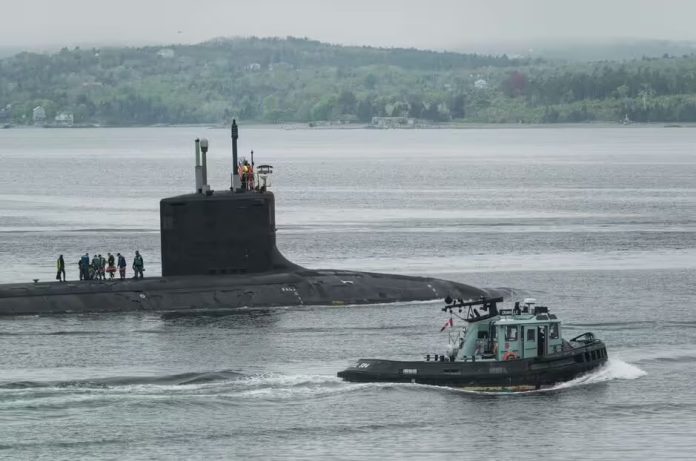US Deputy Secretary of State Kurt Campbell suggested that the trilateral security partnership between the US, UK and Australia, known as AUKUS, might soon be expanded to welcome other Indo-Pacific countries, according to VOA.
Campbell spoke at an event hosted by the Center for a New American Security (CNAS) on Wednesday.
“It was always believed when AUKUS was launched that, at some point, we would welcome new countries to participate, particularly in Pillar 2.”
AUKUS was established in 2021 in the wake of China’s growing presence in the Indo-Pacific region. The first pillar of AUKUS was to provide Australia with a conventionally armed and nuclear-powered submarine fleet.
The second milestone was co-operation in advanced capabilities, such as artificial intelligence, quantum technologies, advanced networking, hypersonic and undersea capabilities, as well as electronic warfare.
Campbell added that other countries expressed interest in participating in AUKUS when the time was right.
I think you’ll hear that we have something to say about that next week.
Next week, US President Joe Biden will hold a trilateral summit with Japan and the Philippines, as well as a bilateral meeting with Japanese Prime Minister Fumio Kishida. Campbell stated that the summit with Japan was expected to “historically” improve security co-operation relations, including the joint development of defence supplies.
During the Japan-Australia meeting in December 2022, Australian Defence Minister Richard Marles indicated that Japan could participate in AUKUS. In August 2023, the Foreign Affairs Committee of the British House of Commons said AUKUS should invite Japan and South Korea to join.
Australia and New Zealand also raised the possibility of New Zealand joining the second pillar of AUKUS after a meeting of ministers in February. Malcolm Davis, a senior analyst in defence strategy and capability at the Australian Strategic Policy Institute (ASPI), argued that the second pillar could build on the strengths of Japan, New Zealand, Canada and even South Korea, but not necessarily as full members.
“Rather than bringing in these states as full AUKUS members, it’s better to bring them in on a project-by-project basis within pillar two areas of priority. (…) It also opens up opportunities to add in some new priority areas — for example, space-related areas, where these states can make a great contribution.”
However, some circles doubt the feasibility of expanding AUKUS because of the risks associated with the sharing and transfer of advanced technologies.
Andrew Hastie, the shadow defence minister of the Australian opposition party, stated that the focus of AUKUS should remain on the three countries already involved to ensure the smooth “transfer of the very sensitive secrets and intellectual property that’s involved in the heart of Pillar 1 and Pillar 2.”
Asked at the CNAS event whether Japan had established a security architecture to integrate into the second pillar of AUKUS, Campbell noted that the US was involved in “a series of engagements with Japan both on the intelligence side and in security spheres.”
The US-Japan Alliance is the cornerstone of our engagement in the Indo-Pacific.
